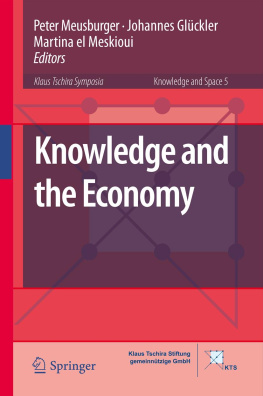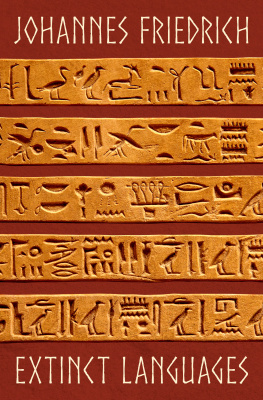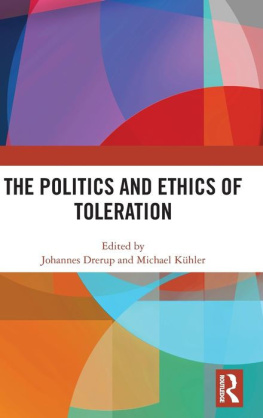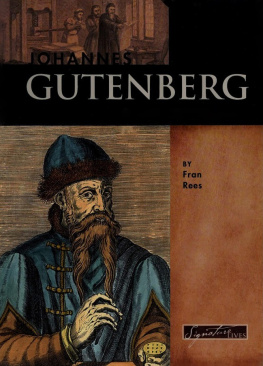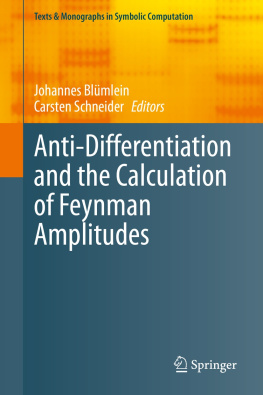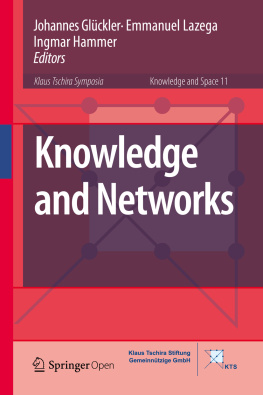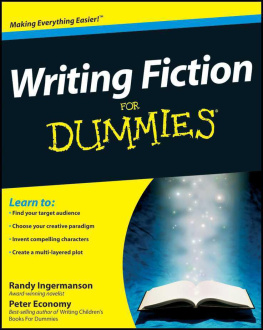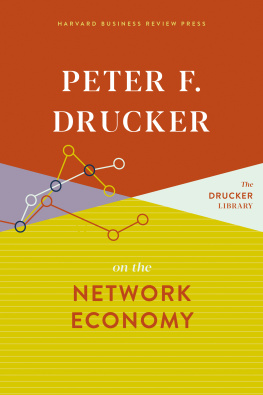Peter Meusburger , Johannes Glckler and Martina el Meskioui (eds.) Knowledge and Space Klaus Tschira Symposia Knowledge and the Economy 2013 10.1007/978-94-007-6131-5_1 Springer Science+Business Media Dordrecht. 2013
1. Introduction: Knowledge and the Geography of the Economy
Knowledge and the Economy
The traditional understanding of economic growth and regional development rests on the process of raising productive capacity through additional investment and on the leveraging of regional income through increased exports (as in an export-based model). However, the neoclassical growth model demonstrates that additional investment can at best bring an economy into a stable equilibrium, for at some point depreciation and replacement investments deplete the profits from existing production. The Club of Rome has long pointed out the limits of economic growth, clearly identifying them as the dependency of economic development on fixed natural and nonrenewable resources in a world whose population is expanding at a disproportionately high rate (Meadows and Club of Rome ). Is economic development finite, then? What drives future economic development? And does geography make a difference to where and how economies develop? Though these fundamental questions lie at the heart of economics, many academic disciplines contribute to the promising answer as to what could make sustained economic growth possibleknowledge.
Of course, knowledge is not novel to economic theory. Relations between educational achievement and economic performance have been discussed since the sixteenth century (see ) underlined the importance of knowledge for economic evolution and competitiveness.
Capital consists in a great part of knowledge and organizations: and of this some part is private property and another part is not. Knowledge is our most powerful engine of production; it enables us to subdue nature and force her to satisfy our wants. Organization aids knowledge. (Marshall 1890/, p. 115)
Unfortunately, this dynamic approach of economics was long ousted by model-oriented neoclassical theory. The fact that theoreticians of neoclassical economics, like their classical role models, were more interested in equilibrium than in change was ruefully noted early on by Veblen (). The classical and neoclassical economists neglect of change and of economic development as an evolutionary process is something he attributed to a biased, hedonistic view of human beings, one not conducive to an evolutionary perspective on matters.
Some of the standard views that mainstream neoclassical economists had on knowledge were that most of it could be codified and transformed in information; that codified knowledge was a public, tradable, and spatially very mobile commodity; that new communication and transport technologies would diminish spatial disparities of knowledge; that homo oeconomicus had access to the knowledge he or she needed for rational decision-making; and that spatial disparities of knowledge were only short-lived. In the last 2030 years, most of these ideas have been largely discredited, not only in science studies, geography of knowledge, and actor-network theory but also in economics, where they have been gradually replaced by concepts of bounded rationality, evolutionary economics, behavioral economics, learning organizations, new theories of the firm, and the strategic management approach (for an overview see Amin and Cohendet ).
For a long time, technological progress had been recognized as a key driver of economic growth. Yet knowledge had been external to growth models (e.g., Solow ) and others integrated knowledge as a factor into growth theories. Endogenous growth theory, the economics of knowledge, and other approaches have focused on processes of innovation and the economic preconditions, qualities, and effects of knowledge. New knowledge makes it possible to evaluate situations more realistically than before, to change production functions, to increase productivity, and to replace existing technologies with newer, better performing ones. But just how is new knowledge generated? What is knowledge in the first place? Questions of this kind are the source of a remarkable polyphony not only within economics but also across the social sciences and humanities.
In the social sciences and humanities, knowledge is regarded primarily as a capacity for social action (Stehr ) phrase it playfully: to say that all Casanovas skills are possible to codify but that the costs of doing so are very high seems to us to be not only a rather empty statement but also a mystifying one (p. 254).
However, some of the authors who regard knowledge as a tradable good seem to set store by a nave model of communication between the sender and the receiver of information. They exaggerate the role of the producer and codifier of knowledge and neglect the cognitive processes taking place in the receiver. They overlook the importance that prior knowledge has for the ability, willingness, or reluctance of potential receivers to accept and integrate certain kinds of information into their knowledge base (for details see Meusburger ). Equating knowledge with information, reducing knowledge to a tradable good, and using simplistic communication models account for much of the lack of exchange that economists have with scholars in other disciplines in which the generation and diffusion of knowledge is studied.
Within and beyond this debate, a vast variety of knowledge typologies has emerged, including embrained, embodied, encultured, encoded, and embedded knowledge (Blackler ) stresses the importance of distinguishing between a narrow and a broad sense of knowledge.
The narrow notion of knowledge refers to knowledge obtained by a methodically well-regulated procedure bound to justification, truth, and verification.
The broad notion of knowing and knowledge refers to the ability to adequately grasp what something is about on the one hand and the domain of human capacities, skills, practices, and proficiencies on the other. (p. 12)
Among the categories or forms of knowledge he identifies are everyday knowledge, theoretical knowledge, action knowledge, moral or orientation knowledge, explicit and implicit (tacit) knowledge, verbal and nonverbal knowledge, propositional knowledge (that which can be articulated in a linguistic proposition, such as I know that ), nonpropositional knowledge (that which cannot be articulated in a that -clause), knowledge relating to matters, and knowledge relating to skills and abilities (Abel , p. 13). This variety exemplifies the theoretical challenge of grasping the phenomenon of knowledge and the way it relates to economic development.

